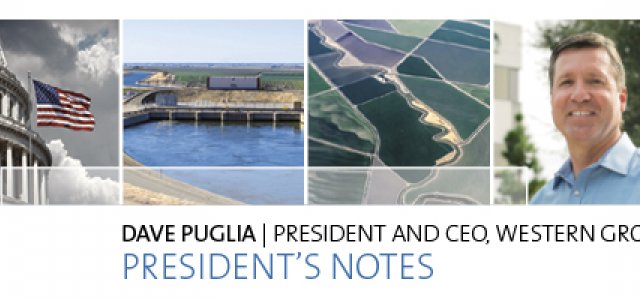“Change is inevitable.”
Like many clichés, this one suggests a certainty of outcome, but is it? Is change—in the aftermath of a historic global pandemic that took many thousands of lives and crashed a vibrant economy—really inevitable in all sectors of our society?
We know with certainty that the COVID-19 pandemic will change our industry and many others in ways large and small, temporary and permanent. From agriculture to hospitality, tourism to sports, the ways in which we engage in society and interact with businesses will be fundamentally altered.
Some changes will be unwelcome and difficult to mitigate. But many will be positive as the economic shutdown and the challenges of preventing the spread of this virus reveal practices and policies in need of disruption. Only by this crisis, for example, did we all master—via crash course—how to effectively use video conferencing technology without the assistance of our kids. Not at first, of course, but we adapted!
Old ways of doing things and the inefficiencies hidden by them suddenly became visible as business models and consumer behavior collided in the wake of the economic shutdown. I believe our industry will be among the first and best at realizing new efficiencies and improved models across all manner of functions, from our fields, orchards and vineyards to our packing, processing and shipping facilities. And of course, in our offices, too.
As hard as it was to suddenly adapt to the work-at-home guidance, the employees who serve within the Western Growers family of companies rose to the occasion and, along the way, we have been eager to reassess what we do and how we do it. For us, as an adaptive and entrepreneurial group of entities united behind one mission, this is the silver lining to the dark cloud of the pandemic.
But back to the question: Is post-pandemic change really inevitable everywhere? What about the public sector? Will it also confront the policies, practices and philosophies that impact private sector companies generating the tax revenue?
The postures of the federal and state governments have been varied and revealing when viewed through the lens of private enterprise. (Someone else can analyze the public health management of the federal and state governments.) The federal government moved quickly into financial relief mode, while the state of California, by Governor Gavin Newsom’s energetic use of his broad legal authority under the state’s emergency powers statute, spilled out a stream of executive orders ranging from an extended employer-paid sick leave for workers impacted by COVID-19 (without a corresponding tax credit, as Congress enacted for the federal counterpart, to offset the cost) to emergency child care options for essential workers.
Under the umbrella of the Governor’s actions, local public health officials and elected politicians responded with new local orders and decrees that caused confusion and, where they seemed arbitrary and capricious, resentment. Through the eyes of Western Growers members, we observed some local officials seemingly trying to one-up each other by decreeing increasingly strict (and illogical) mandates on businesses that clearly exceeded the more practical guidelines issued by Governor Newsom.
To many in the private sector who are fighting to keep our businesses alive and our employees protected, there was a sense that some in government didn’t mind being the center of attention in their communities as they exercised their powers over the “the regulated community” (i.e., businesses and their employees) with an air of superiority. We, after all, are simply out to make a buck; they are dedicated to protecting public health, workers, the environment, etc.
That is not to diminish the seriousness of the public health crisis nor to disparage the sense of partnership embraced by many county supervisors, agricultural commissioners and state-level officials who adhered to notions of pragmatism and cooperation. But across America, examples of government inflexibility, superiority and occasional hypocrisy undermined confidence in government.
University of Tennessee law professor Glenn Harlan Reynolds, writing in USA Today (April 21), helps us keep the current pandemic in perspective, however: “There really are two America’s here: Those still getting a paycheck from government, corporations or universities, and those who are unemployed, or seeing their small businesses suffer due to shutdowns.”
We in agriculture are relatively fortunate; Americans will keep eating and our farmers are now, and will continue to be, the best at providing them the world’s most nutritious and healthy foods.
The question remains, though. We know the private sector will change, but will governments? Those who were compelled by the immense economic destruction of the shutdown to quickly adapt, to challenge and change established thinking, roles and processes, should insist on a similarly difficult introspection and reform by our fellow citizens serving in government whose economic livelihoods were never at risk during this national emergency.



